Can CBD kill parasites?
Estimated reading time: 10 minutes
- Introduction
- A little history – Can CBD kill parasites?
- Ancient civilizations fought parasites with CBD/Cannabis
- So how effective is CBD at fighting intestinal parasites?
- Different types of parasites
- CBD and Parasites
- So why is CBD effective against parasites?
- The importance of terpenes in managing intestinal parasites
- Conclusion
- FAQ – Can CBD kill parasites?
- The Real CBD to kill parasites
Introduction

Can CBD kill parasites? Let's have a look. Parasites and worms that live in the gut can affect the digestive system of both people and other animals. There are a lot of different kinds of these pests, and they can live anywhere in the body. But most bugs and worms like to live inside the walls of your gut.
Parasites and worms in the gut is caused by a few things. Drinking contaminated water, eating food that isn't cooked enough, or getting them on your skin. If you have parasites or worms, you might experience:
- Diarrhoea,
- Náusea,
- Vomiting,
- Stomach pain,
- Bloating,
- Dysentery,
- Tiredness,
- Changes in your bowel movements and appetite,
- Tenderness and pain in your stomach, and
- Rashes around your vulva or rectum.
A little history – Can CBD kill parasites?

CBD is used as a traditional medicine in many places around the world. It has recently got a lot of attention for its ability to fight intestinal parasites. People in developing countries, where medicine is still common and parasitic infections are frighteningly common; they use CBD/cannabis preparations to get rid of these unwanted guests.
The Aka people of the Congo Basin, for example, have been seen smoking CBD a lot. This is a way for them to unconsciously treat themselves. The Aka don't think of CBD/Cannabis as protecting them from worms and mostly use it for fun and socialising. It is however important to note; that cannabis users among them had lower rates of intestinal worm infection than those who didn't use cannabis.
Ancient civilizations fought parasites with CBD/Cannabis
Villagers in the northern Indian state of Uttarakhand still use CBD oil to treat parasite worms. This is also done in the nearby state of Himachal Pradesh and in Andhra Pradesh. It is 2,000 kilometres away in the southeast of India. This is just the tip of the iceberg. Furthermore, it is very possible that CBD is still used in India and the surrounding areas that are not on record.
Moving on to Uganda, a report from 2010 showed that many villagers in the agricultural area in the southwest of the country used CBD to keep their chickens from getting worms. As a preventive step, CBD is given to these birds, which are an important source of eggs and meat. People have been using CBD to treat parasites in their animals. For at least as long as they have been using it to treat themselves, if not longer.
More about CBD
So how effective is CBD at fighting intestinal parasites?

Only a small amount of study has been done on CBD's ability to get rid of parasites in the gut in recent years. Raphael Mechoulam, who is known for his research on cannabinoids, brought this fact to light. In an article from 1987 called “Towards Cannabinoid Drugs,” he said:
- That CBD showed potential as an anthelmintic, but experimental work in this area with cannabinoids has not yet been reported.
One small study of medicinal plants used to treat livestock animals in Uganda found that CBD had some effect on the parasitic roundworm Ascari suum, which can infect both pigs and people. But it worked less well than a few of the other plant species that were tried. Therefore, it didn't make the list of plants that should be studied further. CBD could be effective against several other types of nematode worms.
Different types of parasites
Internal Parasites: The Stealthy Intruders
Internal parasites, as the name suggests, dwell within the bodies of their hosts, exploiting their resources and causing various health issues. This section will provide insights into the most common types of internal parasites and shed light on their impact.
Intestinal Worms: Silent Intruders
Intestinal worms, such as roundworms, tapeworms, and hookworms, are among the most prevalent internal parasites. These cunning organisms can infest the gastrointestinal tract of humans and animals, wreaking havoc on their overall well-being. Symptoms may vary from mild discomfort to severe complications, making it essential to address these parasites promptly.
Bloodborne Parasites: Silent Assassins
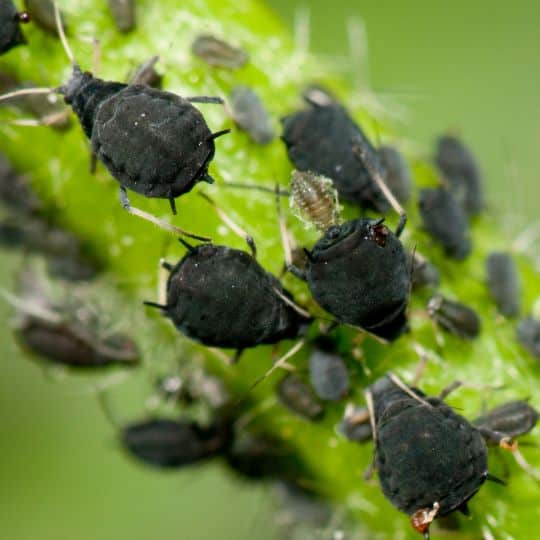
Bloodborne parasites, including malaria-causing Plasmodium species and the devastating Trypanosoma causing sleeping sickness, possess a remarkable ability to survive within the bloodstream of their hosts. Their microscopic nature and complex life cycles make them challenging to detect and treat effectively, necessitating advanced medical intervention.
External Parasites: Masters of Adaptation
Unlike internal parasites, external parasites reside on the surface of their hosts. They employ unique strategies to survive and thrive, often causing discomfort and compromising the health of their victims. Let's explore the intriguing world of external parasites.
Fleas: Tiny Menaces
Fleas, small yet resilient creatures, are notorious for their ability to infest pets and humans alike. These blood-sucking parasites can lead to intense itching, skin infections, and even transmit diseases. Understanding their life cycle and implementing effective preventive measures are crucial for eliminating these nuisances.
Ticks: Nature's Hitchhikers

Ticks, commonly found in wooded areas and tall grasses, latch onto their hosts, feeding on their blood and potentially transmitting harmful pathogens. The rise of tick-borne illnesses highlights the importance of thorough tick checks, prompt removal, and proper protective measures, especially during outdoor activities.
Ectoparasites: Adapted to Externality
Ectoparasites are specialized external parasites that have evolved to thrive in specific environments. They rely on their hosts for survival. Let's explore some noteworthy ectoparasites and their remarkable adaptations.
Mosquitoes: The Silent Buzz
Mosquitoes, seemingly innocuous insects, can transmit life-threatening diseases such as malaria, dengue fever, and Zika virus. Their ability to breed in stagnant water and their affinity for human hosts make mosquito control efforts vital for public health and well-being.
Read more about CBD for mosquito bites here
Lice: Persistent Intruders
Lice, tiny wingless insects, are notorious for infesting human scalps, causing intense itching and discomfort. Effective lice management, including regular checks, proper hygiene, and targeted treatments, is crucial to prevent their spread, particularly in close-knit communities.
CBD and Parasites
Can CBD kill parasites? Scientific research on CBD's direct impact on parasites is limited. However, several studies suggest that CBD may have properties that can indirectly combat parasites. CBD's potential antibacterial and antifungal properties may help reduce the risk of certain infections caused by parasites.
So why is CBD effective against parasites?

It seems that there are two main ways that CBD can be effective against parasitic worms like the protozoa and amoebae. The first possibility is that the targeted parasites actually have an endocannabinoid system of their own. This is affected by the introduction of THC or other cannabinoids in a way, that affects their ability to survive and reproduce.
However, there's also evidence that at least one species of nematode worm lacks a functional endocannabinoid system. Therefore, for parasites like these, CBD must exert its effects via a different mechanism. It's possible that this is because some property of cannabinoids themselves that has not yet been described. However, there is another possibility that deserves consideration: Terpenes
CBD contains plenty of terpenes, as do many other plants—and it appears that many of the plants traditionally used to fight parasites have a few terpenes in common! In recent years, it's become clear that terpenes play a massive role in medicine, and it seems that parasite control is yet another of their abilities.
More from our blog:
The importance of terpenes in managing intestinal parasites
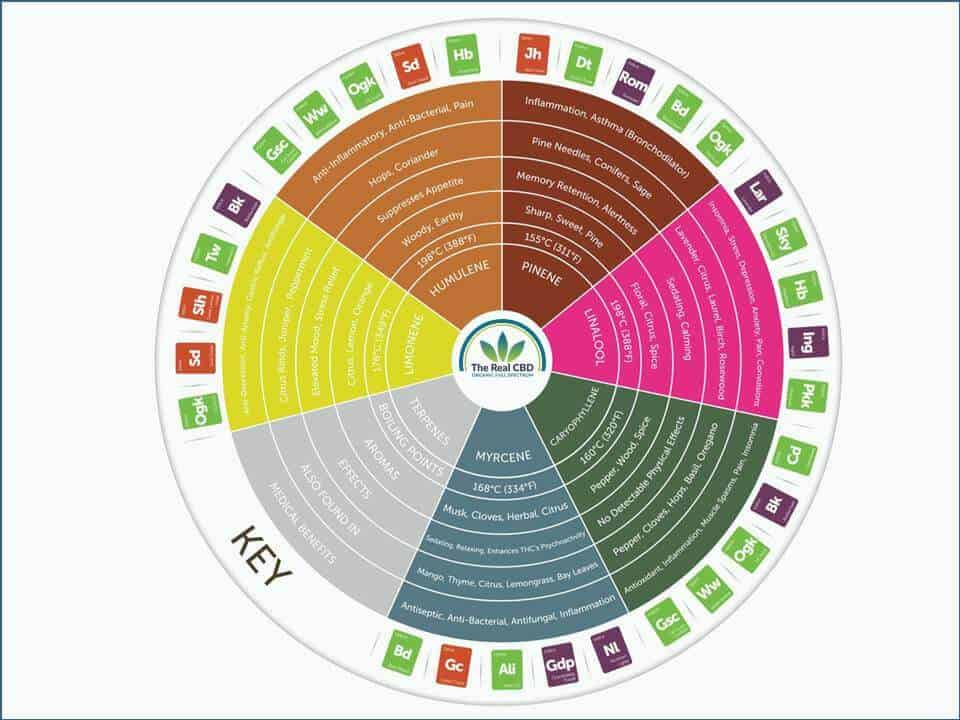
The incredible potential of terpenes, as nature unveils its vast array of possibilities. These remarkable compounds have proven their prowess by eliminating amoebas, protozoa, worms, and trematodes, or halting their growth altogether.
In a compelling study, researchers explored the effects of 34 distinct plant terpenoids on the nematode Caenorhabditis elegans. Remarkably, numerous terpenes commonly found in CBD/cannabis, including nerolidol, geraniol, citronellol, limonene, and eugenol, exhibited potent anti-nematode properties.
Another study examined fifteen tropical plant extracts in their battle against the cattle fluke Fasciola hepatica. Among these extracts, five harnessed the power of terpenes and emerged as the most triumphant. Notably, the plant Artemesia boasts an impressive composition of eucalyptol, linalool, myrcene, caryophyllene, and pinene— all abundantly present in CBD. Unlock the potential of these extraordinary terpenes and witness their remarkable abilities in the fight against various organisms.
Conclusion
Even though there isn't a lot of information about CBD's direct effect on parasites right now, there is reason to be hopeful about its ability to fight parasitic diseases indirectly. CBD's anti-inflammatory benefits and the way it interacts with the body's own endocannabinoid system may help the immune system work better. Before adding CBD to your treatment plan, you should always talk to a trained doctor or nurse about it.
FAQ – Can CBD kill parasites?

There is limited scientific research directly linking CBD with the treatment of parasites in humans. While CBD is known for its anti-inflammatory and pain-relieving properties, more studies are needed to specifically understand its effects on parasites.
CBD is recognized for its potential benefits, including reducing anxiety, relieving pain, improving sleep, and reducing inflammation. However, its effectiveness can vary from person to person.
Generally, CBD is considered safe and well-tolerated. Potential side effects might include fatigue, changes in appetite, and diarrhea. It's always recommended to consult a healthcare professional before starting any new supplement.
Given the lack of direct evidence on CBD's effect on parasites, there's no standardized method for using CBD for this purpose. It's essential to follow product guidelines and consult with a healthcare provider for personalized advice.
CBD should not be considered a replacement for conventional treatments for parasites. While it may offer supportive benefits for overall well-being, specific antiparasitic medication prescribed by a doctor is necessary to treat parasitic infections effectively.
The Real CBD to kill parasites
-
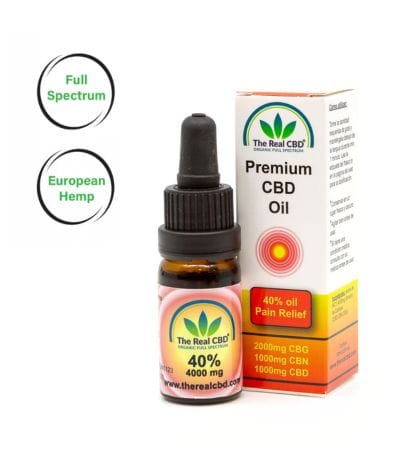 40% Pain Relief oil€179.00
40% Pain Relief oil€179.00 -
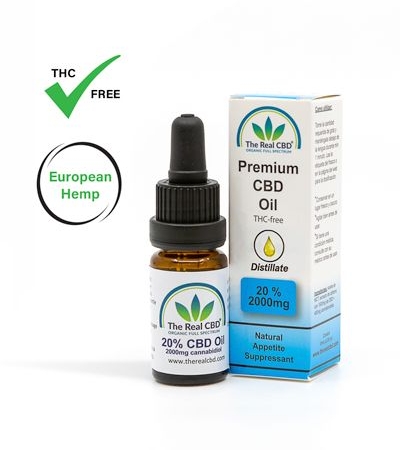 20% CBD oil – Distillate€92.00
20% CBD oil – Distillate€92.00 -
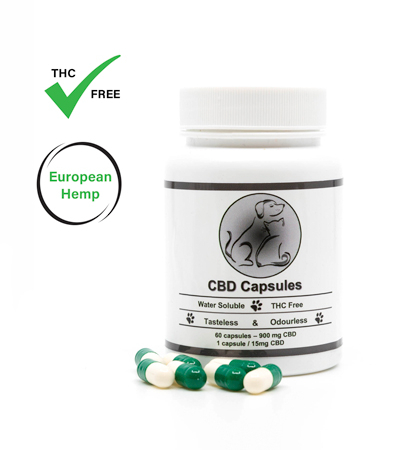 5% CBD Capsules for Pets€59.00
5% CBD Capsules for Pets€59.00 -
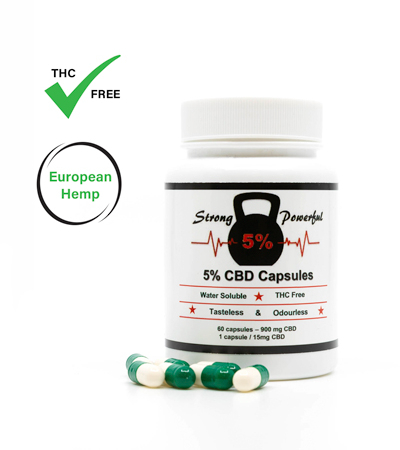 CBD Capsules for Athletes€59.00
CBD Capsules for Athletes€59.00 -
 CBD 3 for 2 pack€58.00 – €170.00
CBD 3 for 2 pack€58.00 – €170.00 -
 CBD Anti Anxiety Pack€179.00
CBD Anti Anxiety Pack€179.00 -
 CBD and Lion's Mane Capsules€55.00
CBD and Lion's Mane Capsules€55.00 -
 CBD/CBN and Melatonin Soft Gel Capsules€60.00
CBD/CBN and Melatonin Soft Gel Capsules€60.00 -
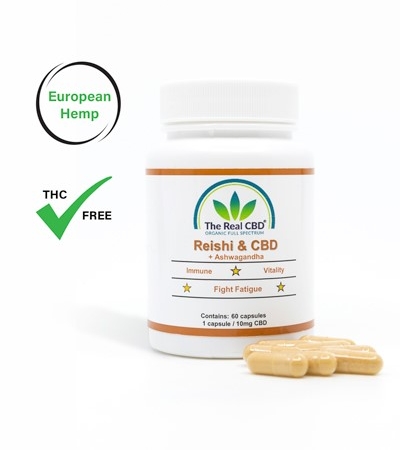 CBD and Reishi Capsules€55.00
CBD and Reishi Capsules€55.00 -
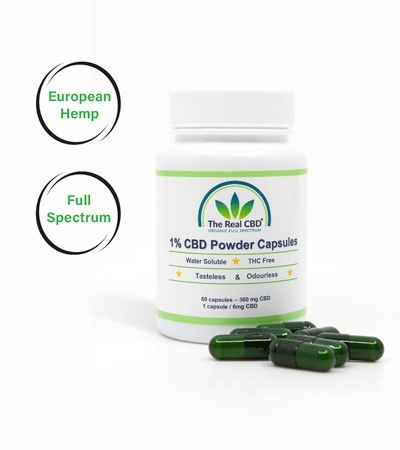 CBD Capsules – Water Soluble – 1%€29.00
CBD Capsules – Water Soluble – 1%€29.00 -
Product on sale
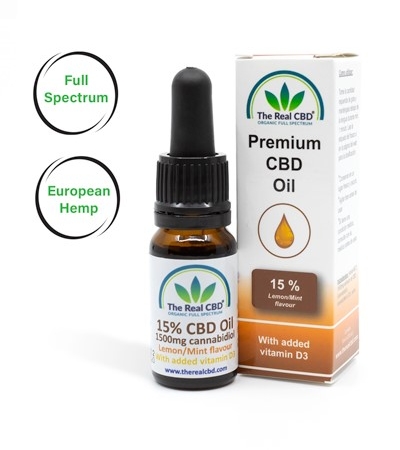 15% CBD oil with Vitamin D3Original price was: €85.00.€75.50Current price is: €75.50.
15% CBD oil with Vitamin D3Original price was: €85.00.€75.50Current price is: €75.50. -
Product on sale
 5% CBD oil with Vitamin D3Original price was: €29.00.€24.00Current price is: €24.00.
5% CBD oil with Vitamin D3Original price was: €29.00.€24.00Current price is: €24.00.

I am a certified expert in Medicinal Cannabis. We are all about giving correct and trustworthy information. We know how important it is to learn about CBD and cannabis, which is why we want to be your go-to source for trustworthy information. We help you improve your health by using our knowledge and experience as a starting point.

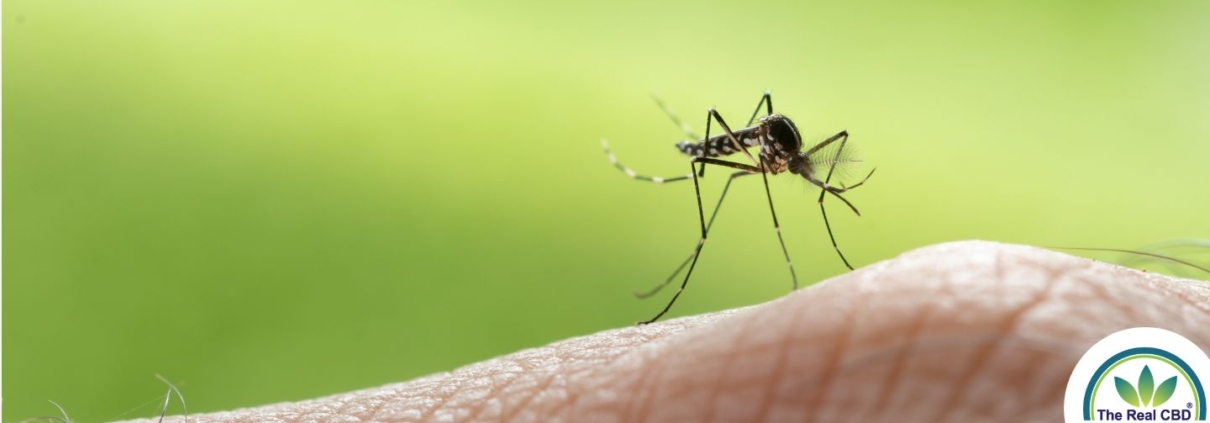












Leave a Reply
Want to join the discussion?Feel free to contribute!